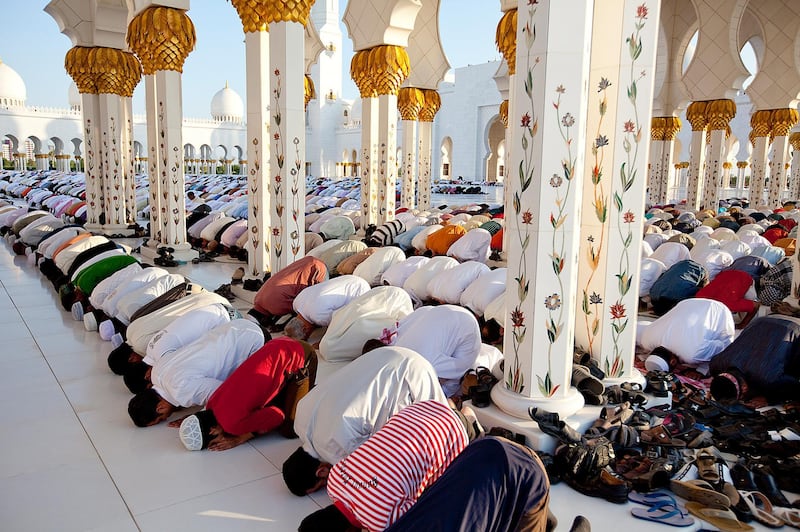It's the question on everybody's mind: when will Eid Al Adha be?
The short answer is we don't know exactly. The official date will be confirmed nearer to the time by the UAE government, but we have a rough idea of when the holiest of holidays for Muslims will fall based on when Eid Al Fitr was celebrated, on June 15.
Eid Al Adha – or the festival of sacrifice – will, therefore, most likely fall on August 21. In the UAE, it tends to be celebrated for three days beginning the day before Eid, which is known as Arafat Day.
UPDATE: Eid Al Adha holiday announced for public and private sector
Arafat Day will most likely fall on either August 21, which is a Tuesday, so it is hoped that a midweek break awaits every public and private sector employee this summer.
Usually, public sector employees are given all four days of Eid off, while the private sector have either two or three days off.
Eid Al Adha is the most important of the two main holidays in the Muslim world and it falls on the 10th day of Dhul Hijjah, the 12th and final month in the Islamic calendar. Once Dhul Hijjah begins, it should be easy to tell when Eid will fall.
Dhul Hijjah translates to 'the month of pilgrimage', which is fitting because it is the month when Muslims perform Hajj – a religious duty that must be carried out at least once in a lifetime by all Muslims who are physically capable and can afford it. Last year, nearly 2 million people from 168 countries descended on Makkah for pilgrimage.
Eid is a time when families and friends come together to celebrate, usually over a meal.
It is customary for a family to have a goat or sheep butchered at an abattoir and share the meat between themselves, their relatives and the underprivileged.
This tradition is informed by the Quran, which tells of how God asked prophet Ibrahim to sacrifice his son as a test of his faith. As Ibrahim prepared to submit to God's will, the devil tried to dissuade him and he threw rocks at him. This is an act is repeated by pilgrims at Hajj who throw stones at symbolic pillars.
Just before Ibrahim carried out God's command, God replaced his son with a goat. Now Muslims celebrate Eid by feasting on a goat.
_____________
Read more:
UAE public holidays 2018 announced by Abu Dhabi Government
Beyond the Headlines podcast: The spiritual side of Hajj the media rarely shows







